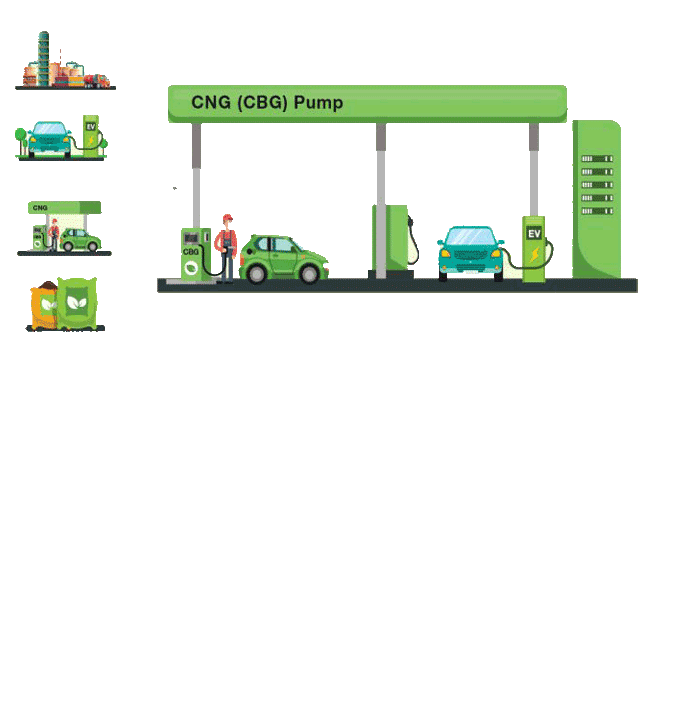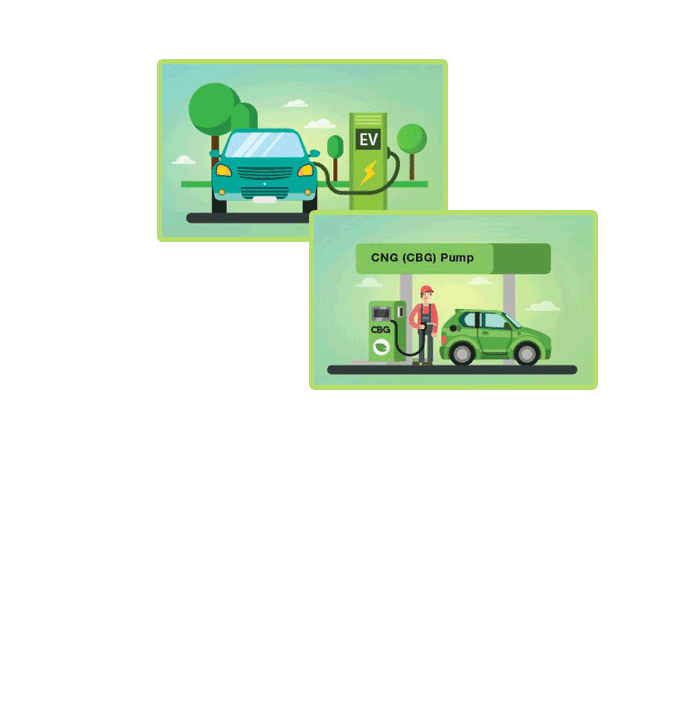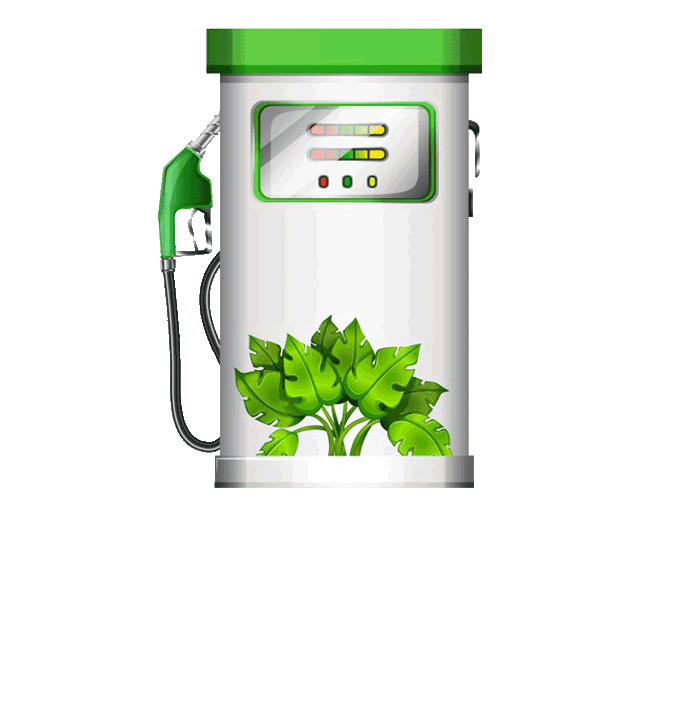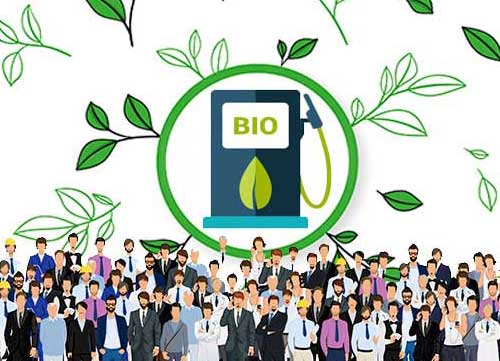A non-polluting and renewable source of energy (equivalent to natural CNG) is obtained in a biogas plants. Under the process organic waste is converted to useful fuel. It is an excellent way of energy conversion. Automobile grade Bio-CNG can be produced from WASTE STUFF from Rural, Municipality, Fruit & Vegetable Market, and Agricultural Wastes, Food Processing Waste and any other Bio Degradable Waste. The waste is collected using special vehicles designed for transporting the wastes from nearby Farm, municipality and villages, in enclosed containers to prevent air pollution by the SPV. Cattle dung is collected from nearby villages used as inoculants. Biogas plants also produce ENRICHED ORGANIC MANURE.
It leads to energy security via conservation of natural resources (LPG, wood, kerosene, coal, etc.). The ENRICHED ORGANIC MANURE can be used as fertilizers. Liquid slurry is rich in micro & macro nutrients along with NPK and can be directly applied in fields. It leads to soil improvement due to high nitrogen contents.
ENVIRONMENTAL ASPECTS
- The project has a low water footprint, as most of the process water is recycled.
- The project is zero discharge and provides valuable solid and liquid fertilizers, which recycle all the macro and micronutrients back to the soil.
- It reduces global warming by preventing fugitive emissions of methane from organic waste streams.
- For all these reasons, the project is entitled to excise and VAT exemption, tax breaks and subsidies.
- Bio-CNG Project provides improvement in the environment, sanitation and hygiene by proper management of waste.
- It improves ground water quality as anaerobic digestion provides several water quality benefits.
- Biogas digesters can destroy more than 90% of disease causing bacteria that can otherwise enter surface water. Thus it reduces risk to human and animal health.







